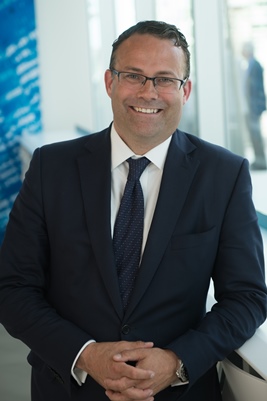OSC continues Canada’s legacy of racism
By Delbert Riley
Tom Longboat was an indigenous person from Onondaga Nation of the Iroquois Confederacy, and arguably one of the best marathon runners of all time. Among his many achievements, in 1907 he won the Boston Marathon, completing the course nearly five minutes faster than any of the previous winners. Yet throughout his running career, each time he was recovering from an injury, the public, and particularly the press, seemed to take great joy in labelling him a “lazy Indian.”

As an Indigenous person myself, I have witnessed many examples of this kind of racism in my lifetime. It angers me when the press and public take such pleasure in kicking the Indian when he is down.
As I write this, another highly successful and high-profile Indigenous person and proud Mohawk is not only being labelled, but in my opinion, unfairly kicked while he’s down in the media, and by the powers-that-be at the Ontario Securities Commission (OSC). Even before a shred of evidence has been heard in a courtroom, David Sharpe’s life as a successful CEO on Bay Street and champion of Indigenous economic development has been destroyed. David and his former company, Bridging Finance, have been tried and convicted in the court of public opinion, the careers and lives of many disrupted by a one-sided smear campaign, even before Sharpe and the Bridging team have an opportunity to defend themselves. There have been no formal allegations or Securities Act charges in the seven months since the OSC released compelled evidence contrary to not only their own statute, but the protections provided by the Canadians Charter of Rights and Freedoms.
Since 2009, Bridging Finance has been providing loans to hundreds of businesses and entrepreneurs to help them grow, or seed new ideas. Many of these loans have been used to build highly successful businesses in Indigenous communities across Canada. Bridging found a sweet spot in the financial sector, turning loans around in a timely manner, often serving as the bridge to major banks as refinance partners.
In early 2021, acting on a tip by an individual seeking a reward, the OSC launched an investigation into Bridging, almost immediately breaking its own rules on privacy and disclosure of compelled interviews by releasing the transcripts to a court-appointed receiver, before both organizations published them online for the world to see.
Bridging Finance and David Sharpe were accused of playing fast and loose with $2 billion in assets under management. Yet every loan by Bridging is reviewed carefully by the company’s credit committees made up of risk experts – and audited annually by KPMG and institutional investors. David Sharpe simply didn’t have the ability to approve loans on his own.
The media has had a field day piling on David Sharpe with salacious personal articles written to paint him and Bridging Finance as bad actors. Yet every loan was approved by the Bridging Credit Committee, and the banks have been only too happy to cash in by refinancing Bridging out of many of these loans because they are highly desirable. Even the controversial A2A railway construction loan was a project poised for success, with a U.S. Presidential Permit, a strong valuation and the green light by auditors.
If and when this matter is litigated, I’m convinced there will be some vindication for David Sharpe and Bridging. This is supported by the multiple offers to purchase Bridging. Regardless, Bridging’s work to support investments and entrepreneurs, particularly within Indigenous communities, is over. There will be no more opportunities for the company to provide loan support to worthwhile projects such as the grocery store and pharmacy in Elsipogtog First Nation, which has created 50 plus jobs in a community facing an unemployment rate as high as 80 per cent.

Watching all of this unfold, I can’t help but reflect on what Tom Longboat must have experienced, being shamed at every turn. Despite all of the current talk about “truth and reconciliation,” I see there is a clear parallel to today’s coverage of Bridging, as the media takes aim, using anonymous sources to describe Mr. Sharpe as a “smooth talker”, “volatile,” and a “hard-partying CEO.” Perhaps it’s the modern way of calling someone a drunken, lazy Indian – once again – without knowing all the facts.
Delbert Riley is a Chippewa from the Thames Reserve in Ontario and a First Nations leader. He is an Indigenous constitutional expert responsible for the inclusion of aboriginal rights in the constitution. He served as National Chief of the National Indian Brotherhood between 1980 and 1982, the organization known today as the Assembly of First Nations. He also once led the Union of Ontario Indians.








